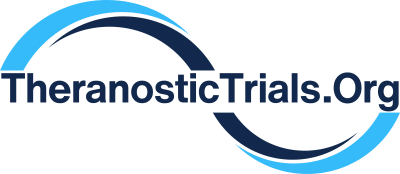Distinguished Investigators
🇺🇸 United States
Andrei Iagaru, MDAndrew Armstrong, MDDaniel P. Petrylak, MDGeoffrey Johnson, MD Ghassan El-Haddad, MDJeff Michalski, MDJeremie Calais, MD, PhDLuke T. Nordquist, MDMichael Gorin, MDMichael J. Morris, MD, PhDNeal Shore, MD Neeraj Agarwal, MDOliver Sartor, MDScott Tagawa, MD🇫🇷 France
Karim Fizazi, MD, PhD🇨🇦 Canada
Kim Chi, MD🇬🇧 United Kingdom
Professor Johann Sebastian de Bono, MB, ChB, FRCP, MSc, PhD, FMedSci🇩🇪 Germany
Professor Ken Herrmann, MD🇦🇺 Australia
Professor Louise Emmett, MBChB, FRACP, FAANMS, MD
Andrew Armstrong, MD

Dr. Andrew Armstrong is a tenured Professor of Medicine, Surgery, Pharmacology and Cancer Biology and Director of Research for the Duke Cancer Institute’s Center for Prostate and Urologic Cancer. He is a medical oncologist and internationally recognized expert in experimental therapeutics and biomarker development in genitourinary cancers, particularly in prostate cancer. He trained at Duke as a biomedical engineer, received his medical degree at the University of Virginia, medicine residency training at the University of Pennsylvania, fellowship and public health clinical investigation training at Johns Hopkins and the Bloomberg School of Public Health, and joined Duke’s faculty in 2006. As a clinical and translational investigator, he is focused on experimental therapeutics for patients with advanced genitourinary malignancies, particularly with a focus on prostate and kidney cancer and the investigation of biomarkers of response and benefit both in the laboratory and in the clinic. He is funded by the US Department of Defense, PCF/Movember, and the NIH for his work on hormone therapy resistance, circulating tumor cell biology and epithelial plasticity. He led the development of enzalutamide and FDA approval for men with metastatic prostate cancer and studies hormone resistance in the laboratory and ways to overcome this in the clinic and the development of abiraterone plus olaparib in BRCA2 mutated mCRPC. He has been a key investigator for several radioligand therapy trials in prostate cancer including the VISION, PSMA Fore, and PSMAddition trials. He was a Prostate Cancer Foundation, AACR, and ASCO Young Investigator Award recipient. He co-chairs Prostate Cancer Working Group 3 and 4 which establishes guidelines for clinical research in advanced prostate cancer, and has been a leading writing member of the NCCN Prostate Cancer panel since 2012 for national clinical guidelines on the treatment of men with prostate cancer. Dr. Armstrong has developed a number of experimental agents in prostate and renal cell cancer, including completed or ongoing trials of AR inhibitors (ARCHES, PREVAIL, AFFIRM, STREAM, AbiRace, PANTHER, AbiRT trials, A031201 trials for example) and AR degraders, PARP inhibitors (PROPEL trial lead PI). He has also led trials involving immunotherapies (sipuleucel T, anti-STEAP1 BiTEs, checkpoint inhibitors, CXCR2 inhibitors), mTOR/PI3K inhibitors, and anti-angiogenic agents, and is heavily involved in the leadership of multiple ongoing phase 1-4 treatment and biomarker trials in men with advanced prostate cancer including serving as correlative science clinical trial chair within the NCI ALLIANCE Cooperative Group in the GU Committee. He led the PROPHECY multicenter study establishing the predictive utility of CTC AR-V7 and other liquid biopsy assays in men with mCRPC. He has authored over 300 peer reviewed publications as well as numerous chapters, reviews, and abstracts. He leads a team at Duke of over 40 research nurses, coordinators, data managers, regulatory specialists, scientists, and investigators dedicated to discovery science in GU cancers in the laboratory and treatment science in the clinic. He is a mentor to many students, post-docs, and fellows and participates in the ASCO mentoring program. As an R01 funded clinical-translational investigator, he has mentored over 20 medical oncology fellows and junior faculty, and many residents and students both in the clinical, for clinical trials, and for laboratory training.

